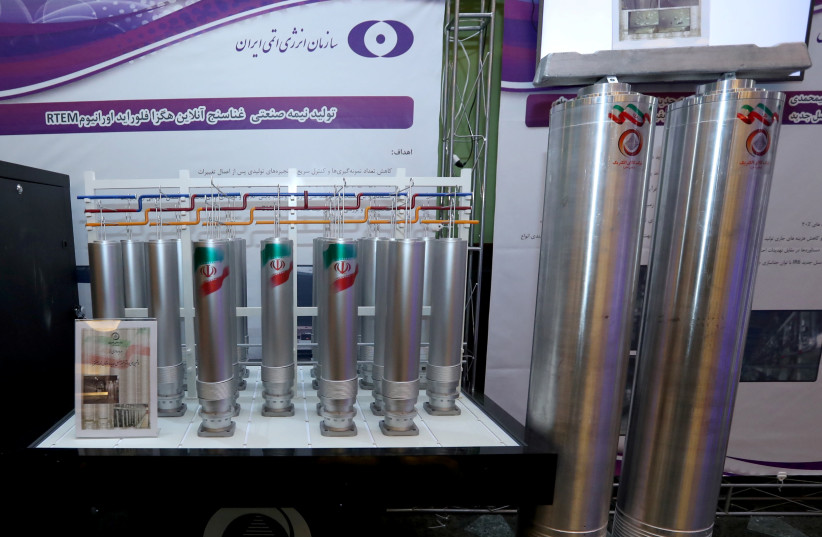As the US and Iran are getting closer to signing a nuclear agreement once more, Israel is expressing its concerns about the ability of a potential deal to stop Iran’s nuclear plan.
For more stories from The Media Line go to themedialine.org
In a briefing to international media on Wednesday, Prime Minister Yair Lapid said that “Israel doesn’t oppose any agreement. It opposes this agreement because it is a bad deal… from our perspective, it doesn’t comply with the standards set by President Biden: preventing Iran from becoming a nuclear state”. Lapid also mentioned that Israel is not part of the agreement and will act to stop Iran from becoming nuclear.
Later on Wednesday, a Saudi outlet published that Israeli F-35 aircrafts have infiltrated Iran’s airspace in recent months, during a large scale exercise conducted with the US above the Red Sea. On July 17th, Israeli Chief of Staff Aviv Kohavi said in a speech that “the Israeli military is preparing for a military campaign against Iran for two reasons: one, is a scenario where there is no deal, and Iran proceeds towards becoming a nuclear state. The second reason is in case there is a bad deal, which doesn’t prevent Iran from becoming nuclear.”
“Israel, and no other country has a real option to destroy the Iranian nuclear plan and prevent Iran from becoming a nuclear power."
Dr. Raz Zimmt from the INSS and the Alliance Center for Iranian studies at TAU
But despite the official Israel stance against the deal, it’s unclear there are any other viable options. “Israel, and no other country has a real option to destroy the Iranian nuclear plan and prevent Iran from becoming a nuclear power. Even a military operation, no matter how well it is done or who is carried out by, can only delay Iran in 2-3 years,” says Dr. Raz Zimmt from the INSS and the Alliance Center for Iranian studies at TAU.
In an interview to The Media Line, he explained why a deal may be Israel’s best choice: “Iran has the knowledge and technology needed, and it can restore anything a military campaign can destroy. So, the question is not how can we stop Iran from becoming nuclear, but what is the best way to postpone that moment.”

Israeli security parties have disputed for over a decade whether a diplomatic agreement can prevent Iran from developing nuclear weapons. While Lapid opposes the current agreement, the Israeli government is in dialogue with the Biden administration regarding the exact terms of the potential deal.
Is a delay of a few months worth agreeing to the deal?
“Most estimations are that this agreement can push Iran away from the military nuclear threshold by a few months, as opposed to the current situation, in which they are only a few weeks away from it. Is it worth going back to the deal, and gaining only six months of? I believe right now there is no better option. We must choose between bad and worse,” says Zimmt, who is considered one of the top experts in Israel on the Iranian topic and has been researching Iran for almost 3 decades.
An agreement between Iran and the US would mean lifting most US sanctions on the Islamic regime, which were imposed back in 2020 when then president Donald Trump announced the US was backing away from the agreement. Since then, Iran has accelerated its nuclear development, and is currently a few weeks away from having military level enriched uranium. Part of the agreement would include Iran dispensing large amounts of its enriched uranium and allowing International Atomic Energy Agency (IAEA) supervisors to oversee its nuclear plants.
“I don’t think Iran estimates Israel is able to attack it immediately. Even [Defense Minister Benny] Gantz said more preparations are needed, and some reports say it is because it is lacking special ammunition necessary to bomb underground facilities, like the one in Fordo,” says Zimmt. “Iran realizes that even if Israel has serios intention to attack it- it lacks the ability. And I think they also realize Israel is unlikely to attack without an American approval, which is a very unlikely scenario if the US returns to the deal.”
The Israeli Defense Ministry and Israeli military refused to comment on the topic.
US Central Command did not answer any of The Media Line inquires.
